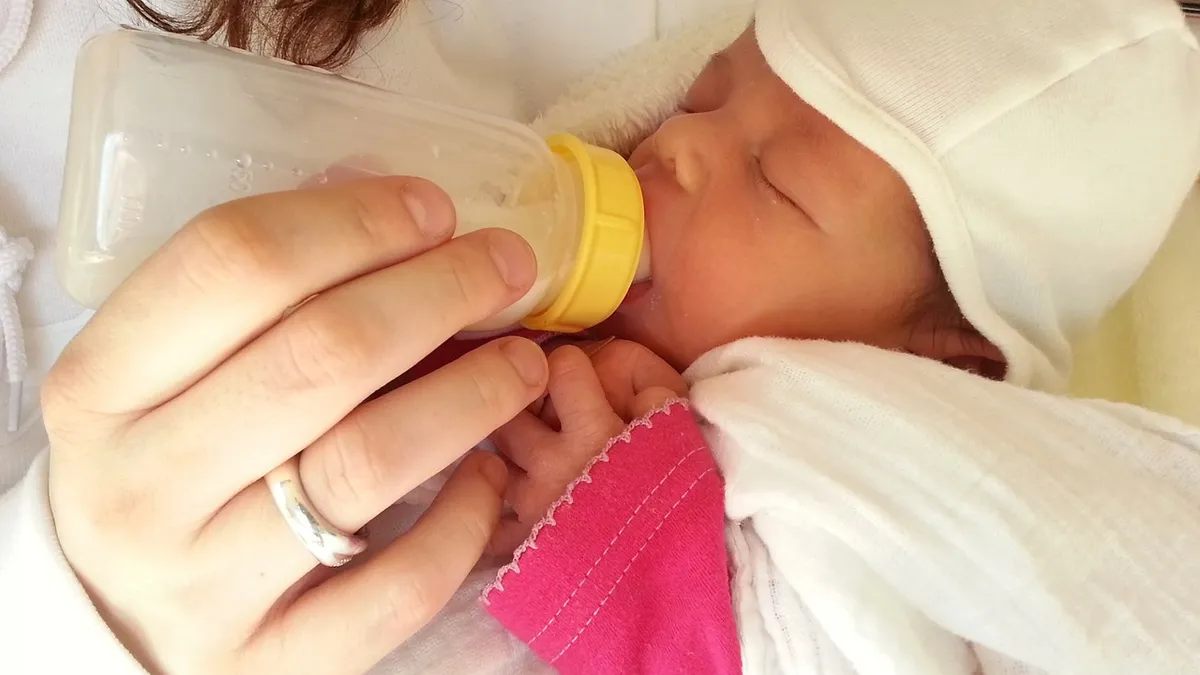Employers have been legally required to accommodate nursing mothers for several years, but many women still face barriers in returning to work if they wish to breastfeed their newborns.
The Break Time for Nursing Mothers requirement in the Affordable Care Act went into effect in 2010. It amended the Fair Labor Standards Act (FLSA) to require reasonable break times to express breast milk for 1 year after birth.
Companies with 50 or more employees must allow a “reasonable” break each time the employee has need to express in a private space other than a bathroom, shielded from view and intrusion from coworkers and the public. Breaks do not need to be paid, and the law only applies to hourly workers. Twenty-eight states, the District of Columbia and Puerto Rico also have additional laws related to breastfeeding in the workplace.
A study, however, found that about five years after the requirements took effect, fewer than half of eligible mothers had access to the required break time and space. But noncompliance can bring enforcement actions from the U.S. Department of Labor, not to mention increased turnover and reduced employee productivity.
Eating at mom’s place
The case for breast milk is strong. The American Academy of Pediatrics believes optimal health and nutrition starts with exclusive breastfeeding for the first 6 months. And after that, the Centers for Disease Control and Prevention (CDC) recommends continued breastfeeding through the first year of a baby’s life. A 2016 Breastfeeding Report Card issued by the CDC indicates most mothers agree, and start off nursing their children at birth. But the numbers fall drastically over time:
- 81.1% of women begin breastfeeding at birth
- 51.8% of infants are breastfed at 6 months of age
- 30.7% of infants are breastfed at 12 months of age
The drop in nursing rates cannot be solely attributed to workplace issues, but a welcoming employer could make a difference.
Limited access
Are U.S. employers welcoming nursing mothers in their facilities? The data from that 2015 survey, Listening to Mothers III, suggests not. When researchers asked mothers about their access to lactation facilities and breaks, 40% reported they had access to both break time and private space. Forty-five percent said they had access to a space that wasn’t a bathroom.
The study noted salaries made a striking difference. Women whose household income was between $53,301 and $102,000 were twice as likely to have access to private facilities and breaks as their lower paid counterparts. And women whose household income was larger than $102,000 were three times as likely to have access time and breaks.
The study also found that access translated to use. Women who had an adequate space available were more than twice as likely to continue nursing their child through 6 months, compared to women without workplace access. Women with adequate space and time were also 1 ½ times more likely to continue breastfeeding each additional month, compared to women without workplace access.
Mixed messages
For lower income workers, the lack of access is contrary to encouragement from private and governmental agencies. The U.S. Department of Agriculture recently posted its recommendations for parents receiving financial aid through the The Special Supplemental Nutrition Program for Women, Infants, and Children (WIC). Their belief: breastfeeding is a priority. They’ve trained their staff to “promote breastfeeding and provide the necessary support new breastfeeding mothers and infants need for success.” Fifty-three percent of all infants in the U.S. are served by WIC. Yet for women in this income bracket, access in the workplace is markedly lower.
Employer benefits
There are many advantages to employers who follow the law. The U.S. Department of Health and Human Services’ Health Resources and Services Administration reports a variety of benefits for employers who support expressing in the workplace:
- less time off for breastfeeding employees;
- reduced health care costs;
- reduced turnover;
- higher employee loyalty and productivity; and
- a positive, family-friendly corporate culture.
Access to lactation breaks and adequate facilities can be a win-win for both employers and staff. The minor, temporary accommodations needed to be a family-friendly workplace can provide real savings and promote a culture of inclusion.
What’s an employer to do?
For many employers, awareness of the law and the benefits of accommodation are the first steps in making a workplace lactation-friendly. Losing an employee is costly, in both resources and productivity, but assisting a new mother with her choice to breastfeed her child for the first year could reap a long-term, committed staffer. Below are ways to help.
Facilities
- Transform unused areas like a storage facility into a temporary space.
- Lend out a manager’s (or an unused) office periodically during the day.
- Block off an area with a partition or a curtain.
- Allow staff to use their own vehicle or a company car.
- Allow employees to work from home, if possible.
Time
- Allow employees to pump during existing break times.
- Allow employees to come in early or stay late to make up for time lost.
- Assign a floater staff member to cover breaks.
- Allow employees to bring phone or laptop with them when they express, if feasible.
- Allow for part-time return to work.
Shawntel Hebert, a partner with Atlanta’s Taylor English offers another creative solution: “Businesses that occupy a building with other businesses may be able to cooperatively designate a space in the building that employees of all of the businesses may use to express,” she said.
Such accommodations can help employers achieve compliance with the FLSA, but that may not be the only law to worry about. Failure to meet that law’s requirements may result in gender discrimination claims or violations of the Pregnancy Discrimination Act, Hebert warned.
“Moreover, since women make up nearly half of the workforce (46.8% in 2015), it is incumbent on employers to offer amenities that will retain the best and brightest employees, which naturally includes women,” she said.




















